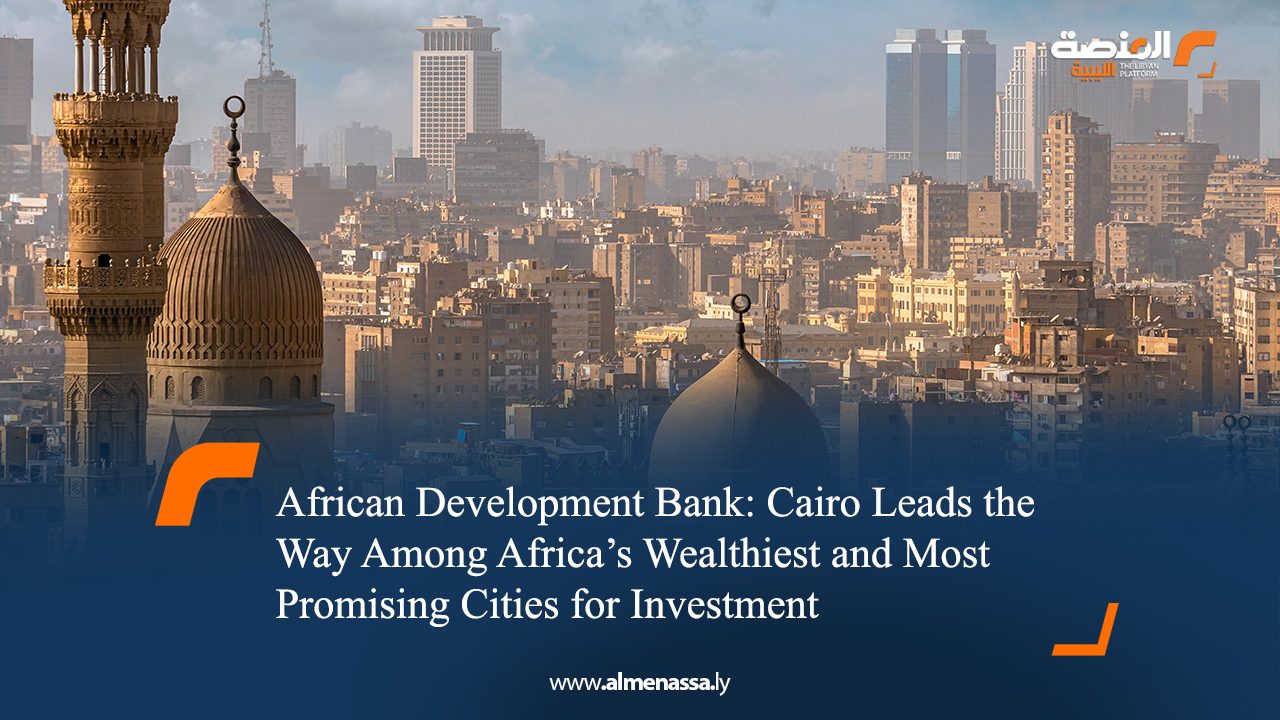The African Development Bank forecasts that in 2024, 11 of the world’s 20 fastest-growing economies will be located in Africa, reaffirming the continent’s position as the second-fastest growing region globally—just behind Asia.
Africa’s real GDP is expected to grow by 3.8% in 2024 and rise to 4.2% in 2025, surpassing global averages and signaling vast opportunities for investment and business expansion across the continent.
A recent report, based on the Statista Global Business Cities Index (2022), identified Africa’s top investment destinations using four key criteria: economic strength and development, business environment (infrastructure and logistics), societal factors (population growth, education, and living standards), and overall attractiveness (tourism, culture, and environmental quality).
Among the standout cities shaping Africa’s economic future are:
Cairo
Cairo stands as one of North Africa’s leading industrial and financial hubs, strategically positioned along the Nile and serving as a political and economic center for Egypt. According to StartupBlink, Cairo ranked among the world’s top 100 emerging startup cities in 2024. The Egyptian government offers competitive tax incentives for foreign investors, particularly in renewable energy and technology sectors, along with exemptions in designated economic zones.
Johannesburg
Known as South Africa’s economic capital, Johannesburg hosts the continent’s largest stock exchange—the JSE. The city attracts global giants like Google, Amazon, and Meta, thanks to its advanced infrastructure, supportive government policies, high quality of life, and cost-effective operations. Its robust tech ecosystem makes it a prime destination for investors.
Nairobi
Nairobi has emerged as a leading hub for African business. Knight Frank’s Africa Horizons Report (2021/22) ranked it at the top for innovation, infrastructure, and access to finance. Investment opportunities span agriculture (coffee, tea, flowers, and avocado), manufacturing (renewables, medical supplies), affordable housing, and fintech. The city also boasts a sophisticated banking system with institutions like Barclays, Citibank, and Standard Chartered.
Lagos
Lagos is Nigeria’s economic powerhouse and the commercial heart of West Africa. With a dense population and diverse industrial activity, it contributes significantly to regional GDP. StartupBlink also ranked Lagos among the top 100 emerging cities globally in 2024. Its vast consumer base and entrepreneurial energy make it fertile ground for startups in trade, tech, and services.
Accra
Accra has positioned itself as a strategic gateway for trade and investment in West Africa. It hosts the headquarters of the African Continental Free Trade Area (AfCFTA), enhancing its appeal to investors. Ghana’s government offers favorable tax policies, including reducing export taxes on non-traditional goods to just 8%, and incentives for financial institutions supporting agriculture and leasing.
Together, Cairo, Johannesburg, Nairobi, Lagos, and Accra represent Africa’s most dynamic cities for business and investment. Their expanding markets, supportive policies, and modern infrastructure make them prime targets for strategic growth.
The Future of Africa’s Wealthiest Cities
These cities are not only economic engines but also lifestyle destinations, offering quality living standards and cultural vibrancy. Johannesburg tops the list in terms of GDP and millionaire concentration, while Cairo plays a pivotal role in Egypt’s economy through tourism, trade, and its strategic location near the Suez Canal.
As Cape Town’s livability, Nairobi’s innovation, Lagos’s energy, and Accra’s expansion continue to shape the continent, Africa’s urban future is becoming increasingly diverse and prosperous.
Technological shifts, climate adaptation, and rapid urbanization will remain key forces in reshaping Africa’s wealth map in the years ahead


